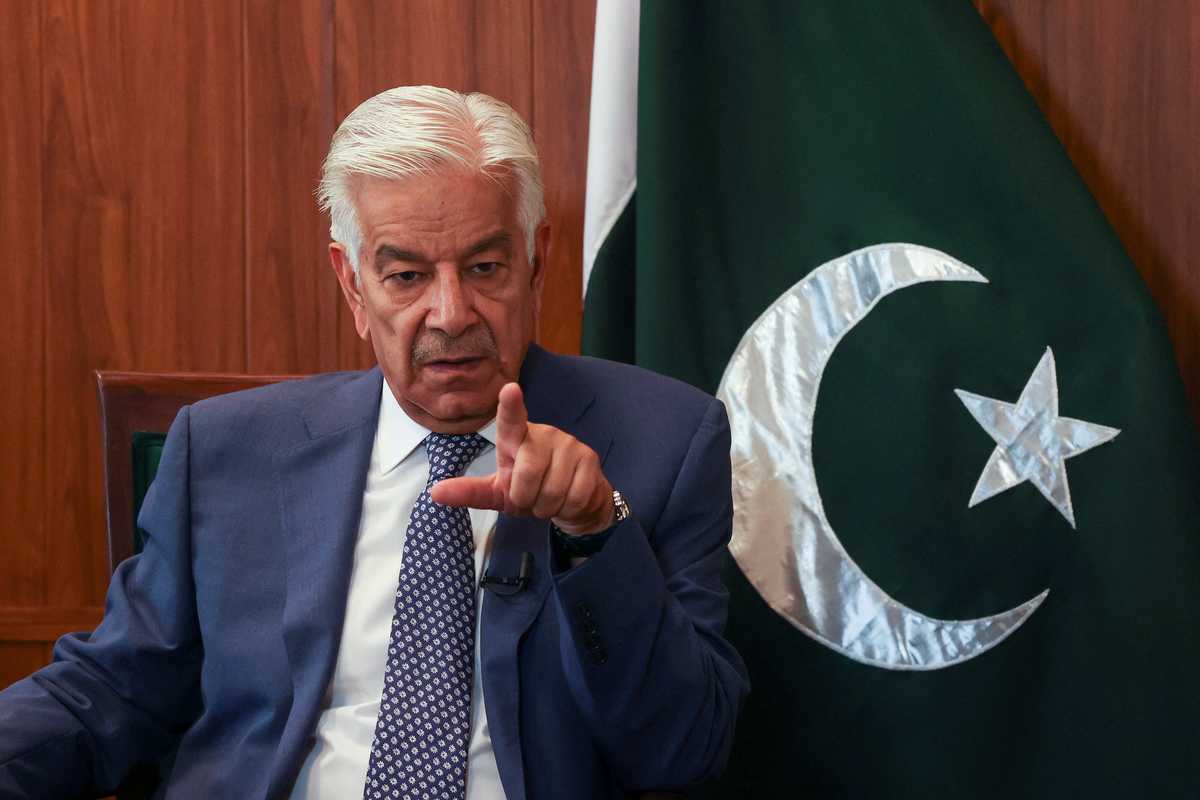Pakistan warns Taliban, cites Tora Bora in fiery rebuke
Defense Minister Khawaja Asif accuses Taliban of pushing Afghanistan toward another conflict 'to preserve war economy'
News Desk
The News Desk provides timely and factual coverage of national and international events, with an emphasis on accuracy and clarity.

Pakistan says Istanbul talks end without solution
Turkey-Qatar mediation fails to find common ground
Weekend clashes kill 30
Pakistan’s defense minister issued a strongly worded warning to the Afghan Taliban on Wednesday, telling them not to carry out “terrorist or suicide attacks” on Pakistani soil.
“Pakistan will not tolerate any terrorist or suicide attacks on its soil, and any adventurism will be met with a harsh and bitter response,” Defense Minister Khawaja Asif said on X.
Referring to recent meetings in Doha and Istanbul aimed at easing border tensions, Asif said Islamabad had engaged “brotherly nations” in good faith but was surprised by Kabul’s response.
“The venomous statements of some Afghan officials indicate that chaos and deception are present within the Taliban government,” he said.
In a thinly veiled threat, Asif warned that Pakistan does not require to employ even a fraction of its full arsenal “to dismantle the Taliban regime or force them to hide in caves."
He invoked the 2001 Tora Bora battle, when U.S. forces bombarded Al Qaeda positions in eastern Afghanistan but failed to capture Osama bin Laden.
“If the Taliban regime so desires, revisiting the scenes of their past defeat in Tora Bora, where they fled with their tails between their legs, would undoubtedly be a new and fascinating spectacle for the nations of the world,” Asif said.
He accused the Taliban of pushing Afghanistan toward another conflict “merely to maintain its occupying rule and preserve the war economy.”
“As far as the narrative of the ‘graveyard of empires’ is concerned, Pakistan does not consider itself an empire by any means,” he added. “But Afghanistan, due to the Taliban, is nothing less than a graveyard for its own people. It has never been a graveyard of empires, but it has always been a playground for great powers.”
Failed talks
Talks aimed at securing a long-term truce between Afghanistan and Pakistan concluded in Istanbul without a “workable solution,” Pakistan’s Information Minister Ataullah Tarrar said Wednesday, dealing a blow to peace efforts after deadly border clashes earlier this month.
The meetings sought to establish lasting peace between the South Asian neighbors after dozens were killed in the worst border violence since the Taliban seized power in Kabul in 2021.
A ceasefire was brokered in Doha on Oct. 19, but a second round of talks in Istanbul — mediated by Turkey and Qatar — ended without progress, sources briefed on the discussions told Reuters. Each side blamed the other for the failure.
A Pakistani security source said the Taliban were unwilling to commit to curbing the Tehreek-e-Taliban Pakistan (TTP), which Islamabad says operates freely inside Afghanistan.
An Afghan source familiar with the talks said they ended after “tense exchanges,” adding that Kabul told Islamabad it has no control over the TTP, which has carried out multiple attacks in recent weeks. Both sources spoke on condition of anonymity because they were not authorized to speak publicly.
The clashes began earlier this month after Pakistani airstrikes in Kabul and other locations targeted the head of the Pakistani Taliban. The Taliban responded with attacks on Pakistani military posts along the 2,600-kilometer (1,600-mile) border.
Despite the ceasefire, weekend clashes killed five Pakistani soldiers and 25 Pakistani Taliban militants near the border, the military said Sunday.
*With input from Reuters







Comments
See what people are discussing